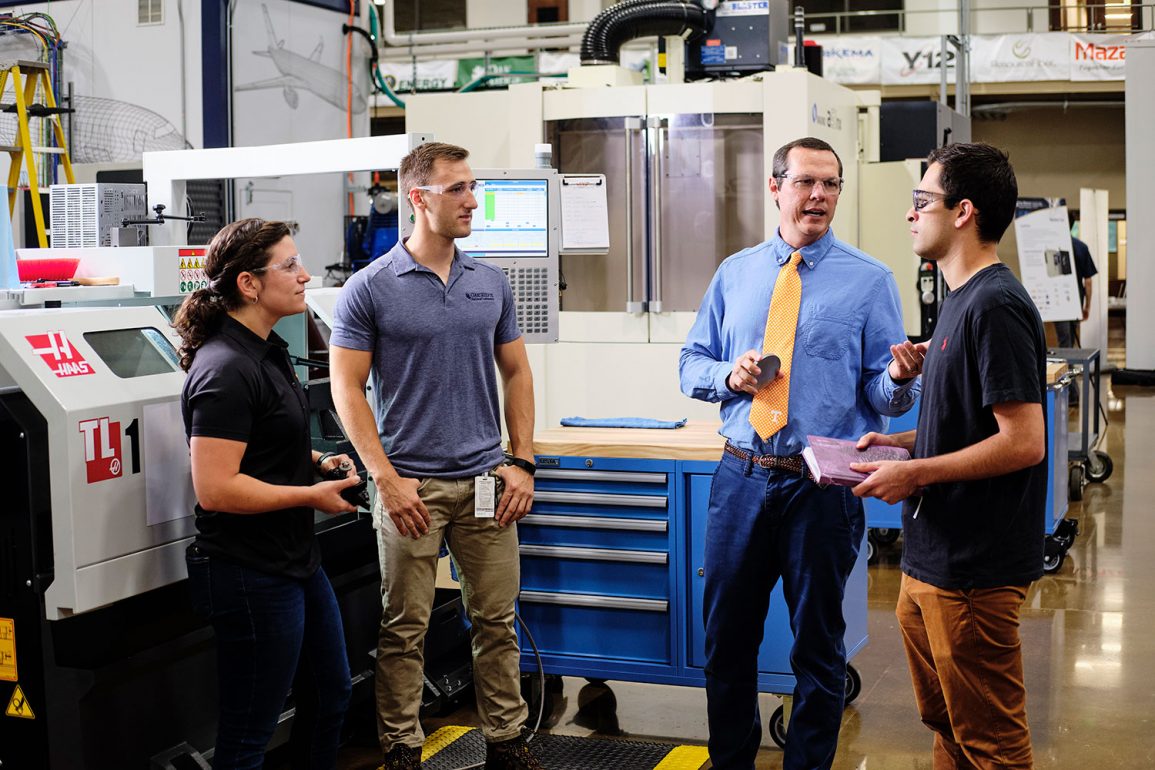For many generations, ROTC programs have provided students a means to pay for higher education and a path toward a military career once students are commissioned as officers upon graduation.
Now, ROTC students have another chance to prepare for their careers thanks to a new program being launched by UT and Kennesaw State University, in conjunction with the Office of Naval Research.
The new offering, “Cybersecurity, data analytics, and advanced manufacturing for the modern soldier: An integrated ROTC research and training program,” will help officer candidates get a more in-depth approach to and experience with STEM-related fields, benefitting both the students and US national security.
“We will be training future soldiers to have a broader understanding of cybersecurity, data analytics, and manufacturing processes,” said Professor Tony Schmitz of the Department of Mechanical, Aerospace, and Biomedical Engineering (MABE), who is co-leading the program at UT with Assistant Professor Brett Compton. “We anticipate this will increase their effectiveness as they proceed in their military careers.”
While the funding is coming from the Navy, the program is open to ROTC students of all military branches, with the goal of eventually having 15 students at each institution taking part.
At UT, the focus will be on cybersecurity as it relates to advanced manufacturing and advanced materials, while Kennesaw State will offer training and education in data science, cybersecurity, and research methods. Students at each university will have the chance to work remotely on coursework at the other partner institution as well as visit ORNL’s Manufacturing Demonstration Facility.
Once classes begin, initial work and training will be completed online at the student’s own pacing. Follow-up time in the lab will give them a better understanding of material properties and designs, setting them up for future design and modelling opportunities.
UT’s Air Force ROTC Commander Lieutenant Colonel Matthew Castillo said the advantages of the program were clear.
“Within the current and expected national security environment, I believe all future officers—regardless of specific specialties—can benefit from an increased understanding of cyber, data analytics, and advanced manufacturing,” said Castillo.
This is an incredible opportunity to receive structured training, practical hands-on experience and to participate in research on real issues that impact our national defense and war-fighting capabilities.”
